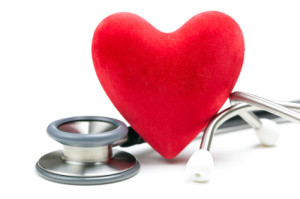 A heart attack is a life-or-death emergency where every second counts. Calling 911 seems like an obvious thing to do if you suspect someone is having a heart attack. Unfortunately, this is not always the first step that people take when they are experiencing the symptoms of a heart attack.
A heart attack is a life-or-death emergency where every second counts. Calling 911 seems like an obvious thing to do if you suspect someone is having a heart attack. Unfortunately, this is not always the first step that people take when they are experiencing the symptoms of a heart attack.
“Even though current guidelines recommend calling 9-1-1 to activate emergency medical services (EMS) for the expedited triage of patients experiencing cardiac chest pain, EMS has been, and is still underutilized by patients experiencing these symptoms,” explains Kenny Williams, Noblesville EMS Chief. “For the best chances of recovery, patients should receive heart attack treatments within an hour of experiencing symptoms.”
The fact that these heart attacks don’t cause chest pain doesn’t mean they are less serious. Mark Rieger, MD, a board certified emergency physician at Riverview Hospital says that just the opposite is true. “Often, heart attacks without chest pain can be the most deadly,” he said. People who have this type of heart attack are twice as likely to die within a month—and nearly three times as likely to die within a year—as those who have an attack signaled by chest pain. Scientists are trying to unravel why this is the case.
The bottom line is this: Call for an ambulance within five minutes of having symptoms, even if you aren’t sure you’re having a heart attack. The longer you wait, the more you put your health at risk.
Would you know if you or a loved one was having a heart attack?
The symptoms of a heart attack can vary. If you think you or someone else is having a heart attack, don’t wait. Call 911, every second counts!
Some of the most common symptoms involve:
- Discomfort in the center of the chest, such as uncomfortable pressure, squeezing or pain in the chest, it may go away and return.
- Discomfort in other areas of the upper body, pain or discomfort in one or both arms, the back, neck, jaw or stomach.
- Shortness of breath with or without chest pain.
- Breaking out in a cold sweat, nausea or light-headedness.
If these signs are present, call 9-1-1. Your life or the life of someone you love may depend on it.
